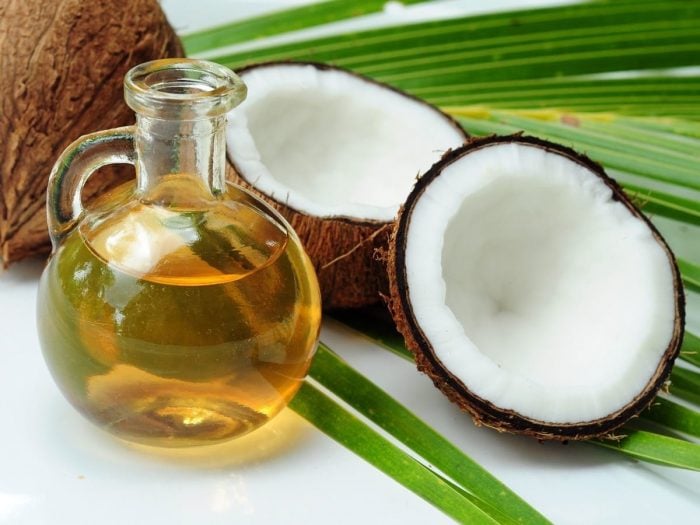Exfoliation helps to stimulate and nourish the skin and is effective in removing dead and dull skin. There are many face scrubs available in stores, but it’s not necessary to waste money in buying them as you can easily prepare scrubs at your home by using simple stuff from your kitchen. Homemade face scrubs are cheaper, do not contains chemicals and safe to use every day. So try these recipes to prepare homemade face scrubs and get glowing and beautiful skin.
Rice flour + Baking soda scrub:
Ingredients:
- Take 3 teaspoon of rice flour
- A pinch of baking soda
Mix both the ingredients well and apply on the face in circular motion for 2 to 3 minutes. Then leave it for around 5 minutes on face and then wash with water. This scrub helps to remove dead and dull skin and adds a nice glow to your face. This face scrub is good for oily to combination skin.
 Walnut and apple cider vinegar scrub:
Walnut and apple cider vinegar scrub:
Ingredients:
- 1 teaspoon organic honey organic Honey
- 1 teaspoon finely ground Almonds
- 1 teaspoon finely ground walnuts
- ½ teaspoon apple cider vinegar (or lemon juice)
Mix all the ingredients and apply on face for 10 min, then by gently scrubbing it wash your face with water. This face scrub helps to deliver lustrous to dry and dull skin.
Sea Salt face scrub:
Ingredients:
- 1 tablespoon of sea salt
- ½ tablespoon of any nourishing cream (or almond oil)
Mix both the ingredients and apply on face and gently massage in upward circular motion to exfoliate the dead skin and then leave it for 2 minutes on face, then rinse off with water. This scrub is good for dry to normal skin.
 Aspirin face scrub:
Aspirin face scrub:
Ingredients:
- 4-5 un-coated aspirin
- 2 teaspoon raw honey
Crush aspirin(it contains salicylic acid removes dead skin) and add honey in to it and make a paste; if required add some water. Apply the paste on face and then gently massage in circular motion, then leave the paste for 10-15 minutes on face and then wash with water. This face scrub is for oily to combination skin. Moisturize the skin well after scrubbing.
Oatmeal + Cinnamon face scrub:
Ingredients:
- 1 tablespoon dark Brown sugar
- 1 tablespoon Oatmeal flour
- 1 tablespoon milk
- 1/2 teaspoon Almond oil
- Pinch of cinnamon
Mix all the ingredients and make a paste; massage it gently in circular motions onto your clean face. Leave it for 10 minutes and then wash your face with cold water. Moisturize the skin well after scrubbing. For all skin types.
Wheat flour + Extra verging olive oil face scrub:
Ingredients:
- 1 tablespoon of wheat floor
- ½ teaspoon of turmeric
- 1 teaspoon of extra virgin olive oil (or sesame oil or any other oil of your choice)
- ½ teaspoon of lemon juice
Make a paste of all these ingredients and gently massage this paste on face, then leave it for 8-10 min and when it start drying out then gently scrub away the paste and wash with cold water. It adds removes the dull skin and add a nice glow. For all skin types.
 Sea Salt + Lemon + Honey Scrub:
Sea Salt + Lemon + Honey Scrub:
Ingredients:
- 2 teaspoon of sea salt
- 1 teaspoon of lemon juice
- 1 teaspoon of honey
Take all the ingredients and make paste and then apply it on the clean face by gently massaging in circular for 2-3 minutes and then leave it on face for 5-10 min and then wash with water. Suits all skin type.
Green Tea face scrub:
Ingredients:
- 3 teaspoon green tea
- 2 teaspoon of brown sugar
- 1 teaspoon of nourishing cream
Mix all these ingredients and then apply on face leave it for 10-12 minutes and then by gently scrubbing it in circular motion remove all paste and then wash with cold water. Good for dry to normal skin and combination skin.
 Almond face scrub for dry to normal skin:
Almond face scrub for dry to normal skin:
Ingredients:
- 2 teaspoon finely ground Almonds
- 1/2 teaspoon fresh milk cream (or Shea butter)
Mix all ingredients and apply a paste by gently massaging in circular motion for 2-3 minutes and then leave it for 10 minutes after that rinse with cold water. This face scrub works wonders for dry and normal skin and leaves skin clean and soft.
Epsom salt face scrub:
Ingredients:
- 3 teaspoon of Epsom salt
- 4 teaspoon of almond oil (or jojoba, avocado or sesame oil or any other oil which suits your skin)
- ½ teaspoon of lavender oil (or any other aromatic oil)
Add Epsom salt in to almond oil, add lavender oil for aroma, leave the infusion for 10 minutes or until all the salt gets completely dissolve in to the oil. Gently apply the infusion on your face and do massage the scrub for 4 minutes and then leave it for 2-4 minutes and then wash with water. Epsom salt face scrub gives great looking and glowing skin.
 Sunflower seed face scrub for dry skin:
Sunflower seed face scrub for dry skin:
Ingredients:
- 3 teaspoon sunflower seed, finely crushed
- 1 teaspoon of avocado oil
- 1 teaspoon of hot mineral water
Mix all the ingredients and then gently apply it on face and when it begins to dry, gently start massaging in upward circular motion and then wash with water. Nourish your skin well after scrubbing. This face scrub works great for dry skin.
Brown sugar + Honey face scrub:
 Ingredients:
Ingredients:
- 3 teaspoon of brown sugar
- 2 teaspoon of honey
Mix all the ingredients well and then apply it on face by gently massaging and then left it on your face for 8-10 minutes. Wash off the face with water. It is simple yet effective face scrub to make at home. For all skin types.
Walnut + Yogurt face scrub for glowing skin:
Ingredients:
- 3 teaspoon of powdered walnut
- 2 teaspoon of yogurt
- ½ teaspoon of lemon juice
Add yogurt in crushed walnut and then add lemon juice, apply it on face for 10-15 min and then washed off. This scrub wills your skin glow.
Exfoliation is a very essential part of our skin care routine, it helps to get us rid of dead and dull looking skin and adds a nice glow to the skin; but over doing anything is always harmful. After all this is our skin and we have to live it our whole life, so we should be very cautious while setting the frequency of face scrub. Also always avoid scrubbing the sensitive skin under eyes. So, try these recipes of homemade face scrubs and flaunt the glowing skin.
http://www.makeupbeautyetc.com/index.php/makeup-and-beauty/beauty-secrets/skin-care/item/126-homemade-face-scrubs.html






 Walnut and apple cider vinegar scrub:
Walnut and apple cider vinegar scrub: Aspirin face scrub:
Aspirin face scrub: Sea Salt + Lemon + Honey Scrub:
Sea Salt + Lemon + Honey Scrub: Almond face scrub for dry to normal skin:
Almond face scrub for dry to normal skin: Sunflower seed face scrub for dry skin:
Sunflower seed face scrub for dry skin: Ingredients:
Ingredients:



